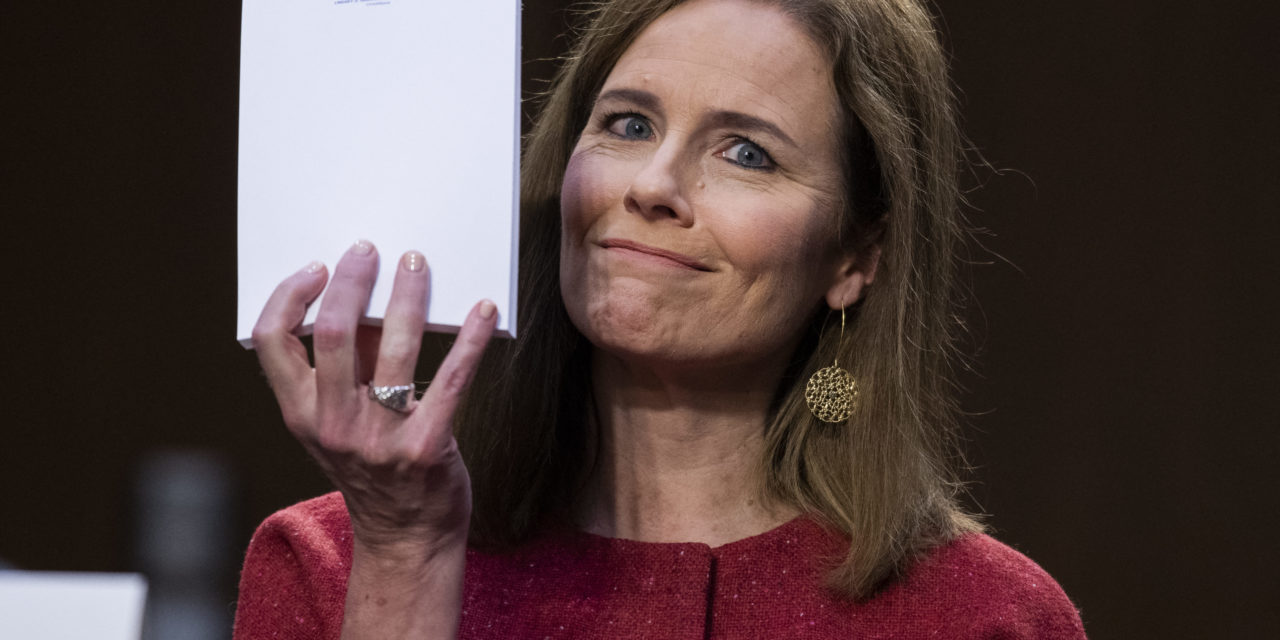A memo to those on the Left: back off Justice Amy Coney Barrett. She can have her faith and be a judge too.
According to some, those who hold to orthodox Christian beliefs on sexuality and abortion shouldn’t be allowed to be judges on federal courts or justices on the Supreme Court of the United States. They see these Christians as biased, and unable to distinguish between their personal beliefs and the role of being an impartial, unbiased judge.
There are now calls for Justice Amy Coney Barrett, a devout Catholic, to recuse herself in the upcoming case 303 Creative v. Elenis – which you can read more about here – involving free speech and the right of individuals to conduct business in accordance with their religious conscience.
One individual, 46-year-old Maura Sullivan, recently told The Guardian that Justice Barrett, who was a member of the conservative Catholic faith group People of Praise, shouldn’t be permitted to make a decision in the 303 Creative case.
“I don’t believe that someone in her position, who is a member of this group, could put those biases aside, especially in a decision like the one coming up,” Sullivan said. Sullivan was raised as a part of the group but left it and currently identifies as bisexual.
But in her speech accepting her nomination to the U.S. Supreme Court by former President Donald J. Trump, then-judge Barrett said, “A judge must apply the law as written. Judges are not policymakers, and they must be resolute in setting aside any policy views they might hold.”
In fact, that’s the job of a judge. It’s what all judges should do. Black. White. Christian. Atheist. Gay. Straight. The role of a judge is to set aside what they think the law should say, and instead, interpret it as written, irrespective of their own personal beliefs.
It’s downright fallacious to assert that conservative Christians somehow cannot put aside their biases, as Sullivan asserts, but atheists or judges who identify as homosexual can. To assert that only Christians are somehow uniquely unable to perform the role of a judge is offensive and discriminatory.
All judges should set aside their biases when ruling – and Justice Barrett clearly understands as much.
Each justice or judge of the United States takes the following oath before taking office:
I, _________, do solemnly swear (or affirm) that I will administer justice without respect to persons, and do equal right to the poor and to the rich, and that I will faithfully and impartially discharge and perform all the duties incumbent upon me as _________ under the Constitution and laws of the United States.
That’s the oath Justice Barrett – and all eight other U.S. Supreme Court justices – took prior to taking their seat on the bench. And there’s no good reason to believe that any of the justices can’t live up to that standard.
Sadly, questions over Justice Barrett’s faith go back to her previous nomination to serve on the U.S. Court of Appeals for the Seventh Circuit.
During her confirmation hearing, California Senator Dianne Feinstein told Barrett that her Catholic beliefs were concerning, as they might impact her role as a judge.
“The dogma lives loudly within you,” Sen. Feinstein asserted.
That discriminatory remark greatly backfired. In fact, it’s possible that remark boosted Barrett’s appeal to conservatives so much so that it is the reason she sits on the U.S. Supreme Court today.
So no, Justice Barrett does not need to recuse herself from the upcoming 303 Creative case. The justice understands her role as a judge. Let her get to work and do her job “faithfully and impartially.”
Photo from Reuters.






